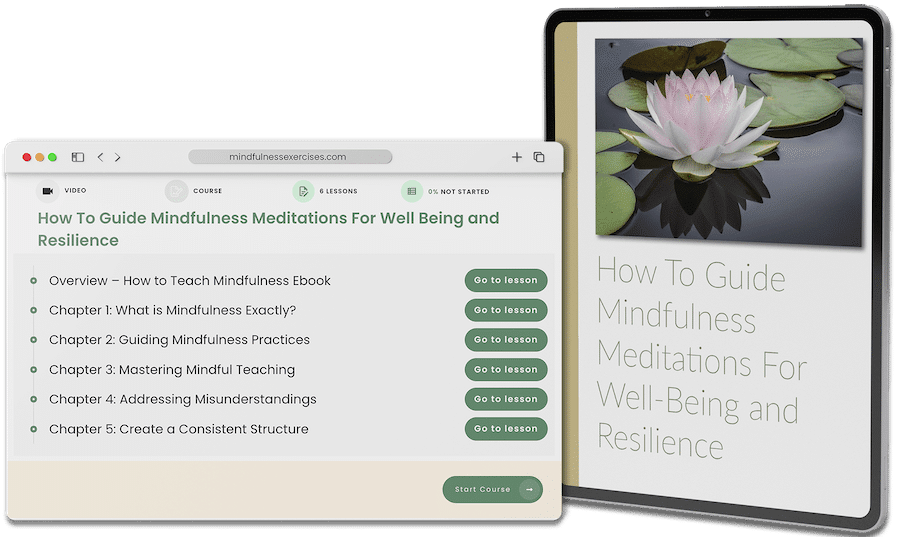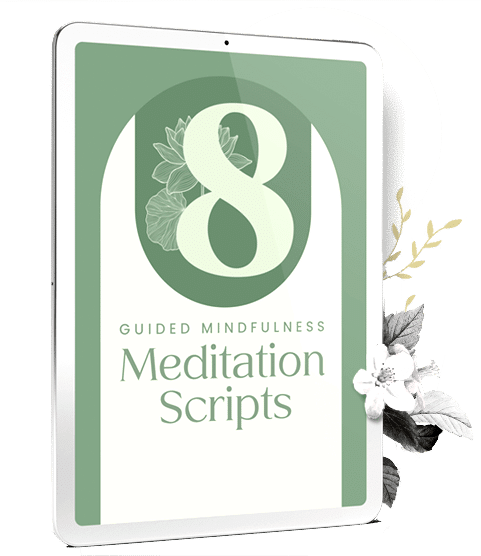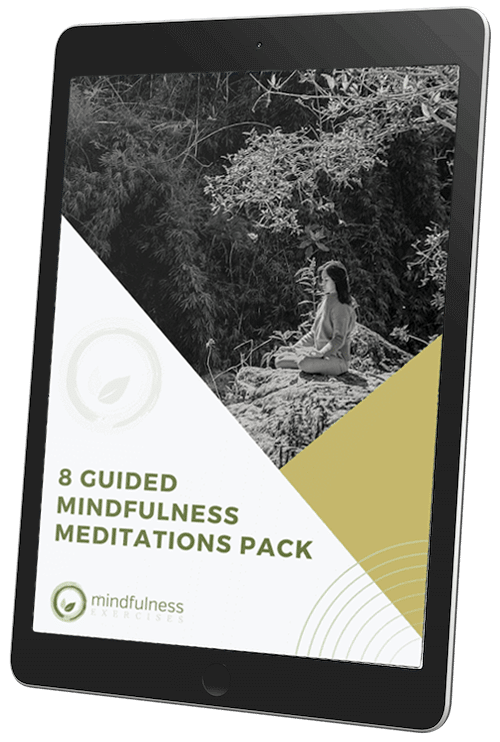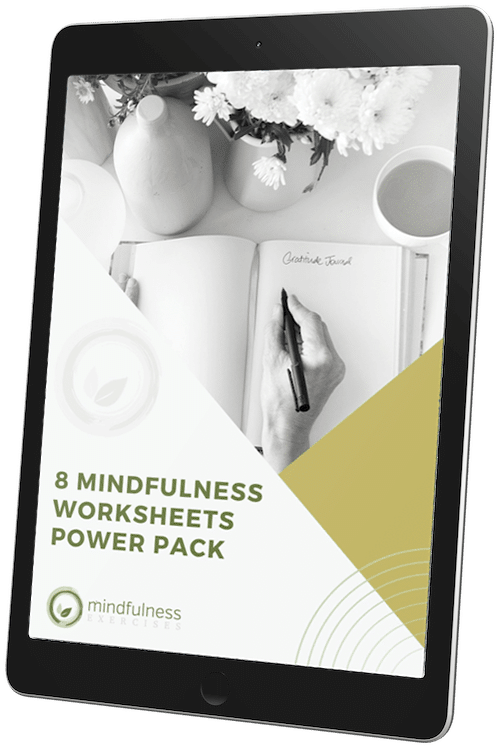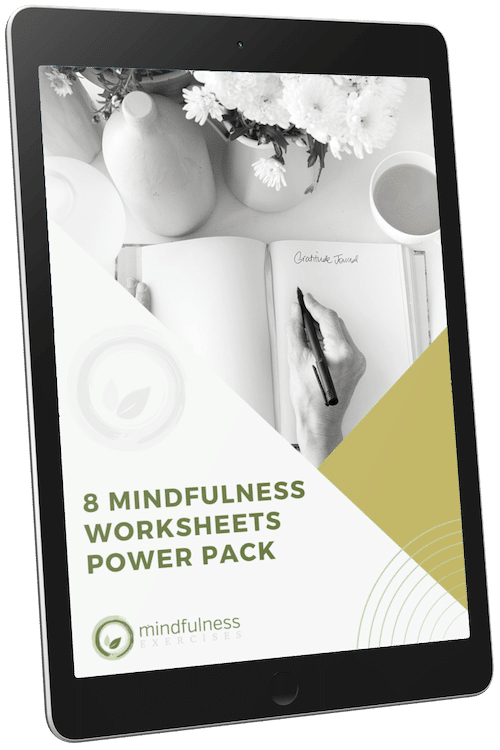Listen and meditate to this audio and learn how to tame your inner critic, especially if you feel like you are your own's worse judge.
Dealing With Your Inner Critic, by Mark Coleman
[ai_playlist id=”194055″]
About Mark Coleman:
![inner critic, Taming The Inner Critic [Audio]](https://mindfulnessexercises.com/wp-content/uploads/2019/05/Mark-Coleman.jpg) Mark Coleman has been studying meditation practices since 1981, primarily within the Insight meditation (Buddhist) tradition. He has been teaching meditation retreats since 1997.
Mark Coleman has been studying meditation practices since 1981, primarily within the Insight meditation (Buddhist) tradition. He has been teaching meditation retreats since 1997.
His teaching is influenced by studies with many great teachers in the Buddhist tradition as well as from Advaita and Tibetan teachers in Asia and the West, and through his teacher training with Jack Kornfield.
Mark primarily teaches at Spirit Rock Meditation Center in California, and teaches nationally, in Europe and India.
—
The following talk was given at the Insight Meditation Center in Redwood City, California. Please visit our website at audiodharma.org.
Good evening, everybody. I just want to say a couple of things before we start sitting.
The theme for the evening talk is working with the inner critic. Freeing your suffering from inner critic. Anybody have an inner critic? You might know somebody who.
So, as you’re sitting, I want you to pay attention to the quality of your thoughts, the turn of your thoughts, and to pay attention to whether the critic, the judge, or whatever name you have for the tyrannical voice inside to see if that arises in your meditation- judging, critiquing, evaluating your meditation, your mindfulness whether your mind wonders and gets distracted or not, just to notice the tone and the quality of how you talk to yourself if you do in the sitting, okay?
So, at ease.
Looking forward, but just to pay attention to the quality of how the evaluating, judging, critiquing mind arises, and maybe what effect that has on your experience if it arises at all. Otherwise, continue to practice in the ways that you’ve already known or have been instructed to.
Thank you for coming.
So, welcome everybody. It’s nice to be here, to be in many years- I think about five (5) years. It’s much more polished out there, and lots of different faces than I remember from last time, and some familiar faces. So, what I wanted to talk about tonight was the presence of the inner critique, or the judge, or whatever words we give it for the voice inside that tends to make our life miserable by thinking that we’re not enough, we’re not perfect enough, we’re not doing it right, deficient in some ways.
And, I just let a day long at Spirit Rock on Saturday and the place was packed, and as I realize, “Oh, this is a popular theme,” because it is, sadly, a popular theme, because it plagues most people I know, it plagues most students I know. And I notice when I meet somebody who’s not plagued with the inner critic, it’s quite striking. When someone’s quite free of negative self-evaluation and putting themselves down for not being enough in some way. Isn’t that familiar? That critic.
There’s a bunch of names, different authors have different names with them- The Perfectionist, The Task Master, The Inner Controller, The Guild Tripper, The Destroyer, The Under Miner, The Molder, The Kill Joy, The Self Doubter, The Inner Tyrant- anybody else? Do you have any names for yours? Little pets that you carry around. No, they carry you around, or push you around, or drive you around, right?
So, I’d like to speak about this theme, because I see, in working with students and myself, how crippling it can be and how undermining of our meditation practice, our self-worth, our value, and just our basic well-being that these patterns and habits of the mind that are oriented towards seeing our faults and our deficiencies in a way that a cripple experience a sense of shame, or what Tara Brach calls the “trance of unworthiness.”
So, in terms of the context of where this fits into the Buddhist teaching, as you may know, in days of old, the teachers often taught more in parable stories, myths, and metaphor, and the Buddha was no exception. And, as the teachings are written down, one of the ways that you can understand this presence of the inner critique is the presence of Mara. Mara is a mythological being in Asia, known as the Lord of Death or ignorance, or the force of darkness that’s both considered an externalized being, but also part of our inner psychic structure, and so, at times, in the text of Buddha’s scene to be in dialogue with this figure called Mara who’s a big kill joy, and is always on the Buddha’s case. So, the most significant time when he appears to the Buddha was in the line of his enlightenment where he is considered- because he’s the symbol of darkness and ignorance, he’s not very happy about the Buddha about the Tenfold Enlightenment. And so, here comes the Buddha, and tries to assail him with fear, and doubt, and lust, and anything to distract him. And then his last- his last kind of pitch to get the Buddha to stray, he says, “Who do you think you are? Who do you think you are to sit on this throne of enlightenment who are all the great Buddha’s have sat from the time of memorial? Who do you think you are Mr. Siddhārtha Gautama to take this sit?” Does that sound familiar? “Who do you think you are to take your meditations? Who do you think you are to be free? Who do you think blah, blah blah?” And the Buddha, not buying into this taunt, he simply puts his hand to the earth in a beautiful Mudra, which many Buddha’s have depicted, it’s called the Burma’s Passion Mudra. And the Buddhism simply says, “The earth is my witness. The earth is my witness for my right to be here, for my right to take this throne of awakening.” And that story is, the Buddha is basically saying that we all have this right, we all have this inherent worthiness to be here, to take our own sit wherever we are to take our own sit on this path of awakening. And so, as the story goes, and Mara realizes he’s defeated and slithers away disconsolately.
What is interesting is, after the Buddha has attained enlightenment, Mara proceeds to harass the Buddha throughout his life, including on his death bed. So, this force of self-doubt, or disparagement, or however you understand it, continues to visit the Buddha periodically. Mostly, he is encouraging the Buddha to give up the enlightened life, just to kind of take it easy and have a quiet life, and kind of like, the voice that comes through us in the morning, “You don’t need to meditate. You know, you’ve had a hard day. You had a hard week. Be nice to yourself. Just kind of chill out, and have a coffee. You know, you can meditation tomorrow.”
And every time that Mara arise at some point in the dialogue, the Buddha says, “Oh, Mara, I see you. I see you. And unseeing with mindfulness, with mindfulness unseeing on that clarity, Mara fades away.” So, nothing can stand up to the light of awareness, which is the same and true in our own line. When we see the tricks and the habits of our own mind, the disparaging or putting us down in some way without validity, when we see it with presence, with awareness, they’re gone. This isn’t really true. This isn’t helpful. This isn’t useful. This isn’t supportive, and we can dis-identify from that particular thought stream.
But for many of us, this is a very pervasive presence. It was sent for me when I first started practice, and as it was true in the Buddha’s life. It continues to arise in my own life periodically. Sometimes in varied difficult times and with great arguments, other times, pretty mellow. But it’s also in the culture. We live in the culture that’s oriented towards highlighting our deficiencies and inadequacies.
I came across this magazine when I was in the waiting room the other day. It was from some slimming magazine that I only read in waiting rooms, because I don’t clearly need to do slimming. And it says, “Get moving tricks to squash your inner slacker for good, you slackers.” Just what we need, right?
So, did anybody knows any meditation? I asked at the beginning of the meditation to pay attention to the critic, judge. Anybody notice and maybe did some negative self-talk, yes? An honest person over there, or a mindful person over there.
So, depending on how much time I have, we’ll go into sort of the history of the origin of the critic and psychological perspective.
What’s interesting in talking to a Buddhist audience or a meditating audience about this theme is that our critic that develops and alliages, usually fully formed by the age of 8, sometimes known as the ‘super ego’, that originally develops as a mechanism as an intro-psychic mechanism that helps ego to orient in a family structure in our cultural system to basically act in a way that ensures our survival. So, it’s a very early, somewhat primitive survival mechanism that inherits the norms and the values of the system around us that we have to fit into to receive love, and attention, and affection, and approval, and all that. So, it basically is a system of right and wrong that tells us how to keep on the straighten arrow as a young being so we ensure the good will of those around us. Very important. And then, there was those norms, those values, those ideas get in case in trying to entrench over the years and then we carry them into our adult life when they’re no longer less necessary.
And then, it enters in other realms in our lives including our meditation. So, many of you will probably have a meditation in a critic, Buddhist in a critic, where the critic will be telling you while you’re not mindful enough, you’re not compassionate enough, you’ve been of a slacker on a Sunday morning, and all of the different ways that will pick up different things that you get into and then use them in Buddhism being very idealistic, and then with many different practices and ideals to aspire, to and of course, we fail frequently in or pursuit of that, and then it’s more further. So, we have to be very careful. I see this time and time again. I’ll give a teaching about some aspect of the practice, and then people will use it to be themselves, “Oh, God, no, I’m not really very kind, or generous, or I don’t have much gratitude, or I don’t have much gratitude, or I don’t have, you know, whatever it is.” So, we want to be careful about how we pick up these teachings and not to give fuel to this part of the mind, and of course, we will. So, it’s a question of how we work with them. This is a cartoon that I like to read from Rhymes with Orange. It’s a wonderful cartoon strip, and it’s called “The Checklist of Feeling Pathetic.”
- Choose someone and compare yourself unfavorably to them.
- Examine your face in the mirror and note all the flaws.
- Relive awful and embarrassing moments that occurred years ago.
- Make a list of all the people you regularly disappoint including those who share your last name.
- Disregard all compliments especially from people who supposedly love you.
- Resign yourself to believing that for now on, this is how you will always feel.
So, funny and painful at the same time, right? Comparing yourself to people unfavorably, relieving embarrassing awful moments that happen years ago. It’s amazing what we do with our minds. You know, there’s the, some of the research about the one we day dream and get lost in thinking and spacing out in the day that somewhat happens between 45 and 60 to 70 percent and these various studies that I’ve read. And that result of that thinking, daydreaming, and spacing out is we feel worse afterwards mostly because the places we go to are not very happy. We go to worry, and fears, and catastrophes, and disasters, and deficiencies.
So, when I turn into my own critic and I listen to other people, I feel like it seems like several things. One is it’s not okay to be human and to have ordinary human foibles. It’s not okay to be who you are. It’s not enough to be who you are and where you are, and it’s not always a reminder that you’re not doing it well enough, right enough, or good enough, but you inherently, and not good enough as you are, and if you notice, but the critic always have a good 20-20 hindsight. So, it’s always telling you how you could have done it better, differently, quicker, efficiently, but of course, you couldn’t, because you acted based on the information you had at the time, you will always do the best at the moment. And sometimes, our information, our judgment is limited. So, it has a very unforgiving tone, unforgiving flavor.
So, I notice that I’m a big outdoor, backpacker, and nature, and I notice that in the places where it’s really unnecessary and extraneous. So, I’m backpacking and hiking along the trail, and it’s a beautiful day, and I notice my critic will be going. Like, why did we take the other trail? I know that would have been a much better view, it would have been less deep and how can we forgot your favorite hiking boots? And what about that camp site? That camp site was better. No, no, no, no, no, no, no. And it’s clearly redundant. And it’s painful though.
And it’s also, there’s an aspect to it that’s a loose lose. So, like for example, I was giving earlier, you’re lying in bed, it’s early, you’re tired, and the thought comes, “Oh, you know, just take it easy today. You know, you’re not so feeling so way, and you know, you’re going to go in a retreat next week, so it’s okay, we’ll give you credit, you know.” And so you lie in and sleep in. And then you get up later, and then the long goes off and the thought goes, “Oh, you’re such a slacker. You’re such a loser. You’re never going to make it. You’re never going to get your practice together.” Hard to win with the critique.
So, the reason I’m talking about this is because, like with anything, we want to bring everything into the light of mindfulness, everything into the light of mindfulness, everything into the light of awareness. The more something is seen with mindful presence, the less we’re identified with it, the more possibility to have space around it, and to have choice or to have some more creative responsive attitude towards it.
I’ll read something from Viktor Frankl whose such profound writings from his time and concentration camp.
“We who lived in concentration camps can remember the men who walked through the huts comforting others, giving away their last piece of bread. They may have been few in number, but they offer sufficient proof that everything can be taken from a man but one thing: the last of the human freedoms — to choose one’s attitude in any given set of circumstances, to choose one’s own way.”
So, with mindfulness, with presence, we have more possibility of choosing our attitude, in this case, to the critic. When we can look at our critic with some presence, we can choose whether we buy into it, whether we believe it, whether we follow its dictate. If there’s no awareness, then what happens is we just go along believing it, buying into it, and feeling somewhat oppressed by it, defeated by it.
So, think about the places that the critic manifest for you and your life—your work, your relationships. Anybody do relationships perfectly? How about parenting? How about the parents in the room? I mean, this is a setup for the critic, because nobody can be a perfect parent. It’s impossible.
I was once working at an IT Mindfulness Consulting, different companies, and I was working with some folks in a hedge fund near where I live, and I went into the company one day to do what would the couple of clients there, and there was a particularly juvelant atmosphere. The hedge fund was still looked up in and it’s great. And, the trade would made a trade where the company would make 50 million dollars that day, and that was a pretty good trade for days work. I expected them to be pretty pleased with themselves, and they would look very stressed, and I said, “What’s going on? You’ve made a million dollar for the company today?” And he said, “Yeah, it was a good result, but you know, I knew I should have sold later. I should have hold on a few more hours, and I would have win a few more millions. You know, it’s a great example– it’s never enough. No pleasing.
So, I mentioned that this arises from a sense of survival mechanism, the way we fit into the culture of the family system, and we can notice its manifestation in different ways. So, sometimes, it comes through as a thought, as mental constructs—you’re hopeless, you’re banned, you’re wrong, and not enough, you’re insufficient, look at why the other people are doing it better, blah, blah, blah, blah. Sometimes, we just feel it emotionally. Sometimes, it’s pre-thought, or the thought has a reason, but we don’t catch the thought, and we feel it energetically. So, you know when you’re feeling under the influence of the critic, because I physically feel a little collapsed, a little deflated, the mind is foggy, emotion that you feel defeated or deflated, or despair, or hopeless. Energetically, you feel kind of heavy and saggy, like the winds being taken out of you.
So, for me, sometimes when I’m feeling a fogginess, or I’m sitting at my desk and I’ve done something I’m not happy with and I’m feeling some deflation, but there’s no thought content, I’ll actually try to bring it up. I’ll ask what is this feeling, what is this sense of energy that’s the deflation is for, what’s the thought, what’s the view, what’s the belief that’s if this feeling and energetic emotion taken, what would it say? “Oh, I messed up. Oh, I really blew that conversation. I really was unskillful here and there.”
So, I can see what the view is, because we need to identify the belief system of the thought, so it can have something to work with. It’s hard to work with just the deflation and the energy.
So from the perspective of mindfulness, the good news about working with this part of the mind is what I see with both the meditation retreats and classes with my clients is that when people start peeing more conscious attention at this part of the psyche, then can make a lot of shift in terms of their own mental well-being. My experience is that inner critic is the most prolific causer of misery that I know. You know, aside from physical health or sickness. And in terms of our mental suffering and depression and all the states and arrestment, I see it crippling and undermining people’s well-being and happiness. It’s the voice that comes when you’re not doing anything at all, you’re in meditation and you’re sitting at ease, and it just undermines that sense of being relaxed, or what about this? Well, look at your—how about cleaning up your closet? What about these bills that you haven’t paid? Look at your body. You’re so overweight, you’re so—you’re such a slog. It’s an under miner of ease, and keeps our certain restless going.
So, what do we do with this voice? What we only do is that we try to rationalize. We try to defend ourselves against it. “Oh, no, no, no. I’m not really a slog. I mean, I went to the gym last week, and you know, I do walk to work and uh—“
The problem with any kind of what I call “engaging the critic” is we give the critic authority. So, as soon as you’re in rationalization, you’ve lost. You can’t actually—it’s like I make someone, with something about God. You can’t win or lose that argument. It’s the same with the critic. You can’t win an argument with the critic. The critic will always find another response to whatever you say. So, and, to start argument with the critic means you’re giving validity and authority to a part of your mind that you really don’t want to be giving attention to it at all. Because, really, the critic is just a bunch of thoughts. It’s just like everything else in the mind. It’s just a bunch of thoughts. Incredibly powerful if we give them that authority. And if we see them in the light, it’s just a bunch of thoughts. They’re repetitive. They happen to be repetitive over several decades. They’re just a bunch of thoughts.
And I was working with these students on retreats, Spirit Rock is not like living in the world of the out-of-critic, you know, where it feels where there is a lot of critics, critics, I mean in the arts, in the creativity, all work will be critiqued. And he was working down the hill, and his judge was on his case about not walking properly and not doing the mindful walking properly, and you know, as if you could walk incorrectly. And there was a sufficient space in mindfulness to see that the tyrant, the mind, you just go and on, you just realize, “Oh, it’s just a bunch of thoughts. It’s just a yakidee-yakidee-yak.” It doesn’t really have- it could be saying, “The sky is blue,” but it just happens to be saying negative things about me, but I don’t have to pay attention to.
So, pay attention to how you relate to your critic. Are you afraid of it? Often, we act in our lives out of fear of getting disapproval from our critic. We are afraid just like we are afraid of fear, we’re afraid of the critics’ bombardment, so we keep our lives in ourselves small and safe so we don’t encourage threat. Do you notice when you do that? Notice when you limit your actions or your courage because of fear of messing up, particularly when it comes to decision making. How many of you are paralyzed, or get anxious about decisions, because you don’t want to make the wrong decision, because if you do, you’re going to give yourself hell. You know? Mostly. Mostly, we are our greatest enemy in retrospect.
So, I want to be sure to say that when I’m talking about the judge and the critic, I’m not talking about critic itself or judgment itself, or evaluation as a place just like there’s a place for thinking, there’s a place for critiquing, for evaluating, for judging, for discernment. So next thing, we throw all those things out. But to make distinction between, you know, we can, at the end of this meditation, you can look back over the last 45 minutes and you can critic your practice. Well, how is my practice today? Was it concentrated? Was it relaxed? What it mindfulness bound with energy and concentration? Where the fact that there’s concentration present? You know, many different ways to- in fact, if I’m distracted a lot or not. That’s a simple critic, versus when I want to waste a time, I mean, look at you, I mean, you’re just all over the place. I mean, you just wandered here and there, and you want to think about dinner, and what’s the point? You might as well give up now. That’s the judgment that has a negative emotional tone that makes you feel, technical term, like crap, basically. So, two very different things—so, as I wanted to make this point that we’re not saying that there’s not a place for discernment, and evaluation, and critic, but to see the distinction between that and judgement, which makes one feel bad, unworthy, shame, useless, less than deflated.
Another thing that’s interesting to notice is we allow the critic to remind us of our faults and mistakes, and deficiencies. So, say, we do something and we mess up, you know, we let somebody down, we’re up there when somebody needs our help, we forget our dear one’s birthday, and many, many ways we can mess up in communication.
And then the critic, if it’s in its high host, will remind us of our mistake about fifty times a day. So, the person I’d like to compare is, imagine your best friend was walking behind you and was imitating your critic and giving you feedback every few minutes about you and your dress, and your weight, and your performance, and your style, and your communication, right? Particularly if you messed up about something and your critic was reminding- and your friend was reminding you about your weakness, “You know, you really screwed up. You know, you’re really a messed up. You just give it up now.” You would turn around and say, “Thank you. I heard you the first time. I got the message. I messed up. I’m looking at that. I don’t have an intention of doing it again. Thank you. Go have a nice cup of tea somewhere else.” But with the critic, we don’t. We just let it go on, and on, and on, as if we’re being beaten down, beaten down. I wonder if it’ll depress us sometimes, because we beat ourselves down.
Sometimes, we’re loyal to the critic, because we think we need it, want to get out of bed, to do our practice, to get anything done, and because we think it’s the voice of conscience and authority, the critic takes the high ground of that which knows right or wrong, good and bad, but actually, through our own presence and awareness, and conscience, we have a much deeper access to what’s right and wrong. We always look at that critic for that authority.
So, some ways to work at the critic, and I’m condensing a whole day of workshop here to a talk—one thing that’s useful to do is to see if you can identify whose voice it is. Sometimes, our critic has a very distinct voice. “Oh, this sounds very like my dad, my mom, or Rebecca, or the Pope, or whoever, some character in my past, my brother, my primary school teacher.” Sometimes it doesn’t. Sometimes, it reminds us of how our parents talk to themselves. The very similar pattern.
So, mindfulness is our greatest ally. One thing we can do is that every time we notice we’re judging, we just make a note, “Oh, we’re judging. We’re judging.” Whether it’s going inward, outward, both, what we do inside, we do outside, what we do outside, we do inside. So, every time we knows we’re judging, whether it’s somebody’s shoes, the way they walk, partition on TV, ourselves, for our meditation or not getting together, whatever it is. Oh, judging, judging, so we want to create space and some distance between ourselves and the judgment.
Try counting your judgments in a day. So tomorrow, your homework, if you’re interested in this, count how many times you judge, and you’ll be surprised it’s a lot. 793, 794,… and you go, this is really silly, it’s really boring to. There’s much more productive I can do with my mind than just judge everybody. So, naming the judgments, counting the judgments, writing them down is very effective. We have much more discerning critical, discernment to the written word than to the words in our head. So, write them down. And then ask yourselves, is this true? Is this really true that I’m a loser? That I’m not going to get my stuff together, that I’m going nowhere. Write them down. Even better actually if you share it with somebody. I know it’s like— But it actually helps to do this with a partner. I do this one, I do this workshops. It helps neutralize it, and it helps normalize it. We see, oh, we all have the same stuff, we may have different words, but basically the same, not good enough, it’s like, “Oh, really?” And if you share this with your friends, or your loved ones, I can guarantee you that they won’t have that same point of view. And even if there’s some concurrence, they won’t be rejecting you for it. They might love you for, will have compassion for you for it, but not judging you for it.
Meta practice is a wonderful support to work against the critic. Meta practice, as the Buddha talks about, is a replacing practice for negative mental states for places, hatred and fear, with loving kindness. So, instead of saying, you wake up in the morning, “Wow, what are you going to mess up today?” “May I be happy?” “Oh, you’re such a loser.” “May you be peaceful.” “Well, you’re not getting there. You’re so disorganized.” “Thank you. May you be happy.” So, you just plan, you just replace it with this statement. So if you got 797 judgments a day, then you have 797 resistance.
What’s tempting around for me was when I began to feel the impact of the judgments in my heart and I began to, instead of being an ally with the judge, I become an ally with myself and began to feel what it’s like to talk to yourself like that, and it’s actually really painful. Just as if someone else was throwing that stuff for you. It really hurts, to put yourself down, day after day, after day. And if you feel that, if you really feel it in your heart, at some point, the heart will say, “I don’t want to do this anymore. I don’t want to believe this stuff anymore. This is really unhelpful and painful.”
One thing you can play with is sensing into the opposite. So whatever the judge says, are you such a loser? See what it’s like to feel the opposite. I’m really successful. Now you’re not going to get your life together. I have everything I need and I’m perfectly fine just as I am. Whatever the opposite would be. There will be useful practice another time.
You can ask, “Is that true?” Here, I find the most useful on my judge English wig, “Bad meditator, bad.” And I exaggerate, “Yes, I’m the worst meditator in the world.” Or you do a Tai Chi move and you say “Thank you. Thank you. I’m really terrible? Really? Thank you. That’s really helpful. Anything else?” Oh, I started to say, “Great. Thank you.” Because that part of mine is looking for opposition when you use, “Oh, really?” “Yeah, you’re right. Yeah, I’m not very organized. You’re right. Thank you for pulling it out.” Great. So, you can see it’s a movement.
Here, my help is to identify, just as mindfulness does. Sometimes, you can speak the truth about how it feels, “Aww, that really hurts to call myself a loser. Wow, that’s painful.” Sometimes, you can be fierce like you’re with someone, beating upon your friends or child, you say, no, stop, enough. This is really unkind. I’m not, I’m not going to listen to this. There’s a place for that in meditation, too, in our lives.
So, I have to stop here unfortunately. I just feel like I have to get going. You know, I’ll just leave with something, a poem. How about Mr. Walcott, it’s a good poem of self-kindness. So I have to come back and do Part 2 of this talk. So, this is Derek Walcott- Love After Love. A poem I’m sure you knew so well.
The time will come
when, with elation
you will greet yourself arriving
at your own door, in your own mirror
and each will smile at the other’s welcome,
and say, sit here. Eat.
You will love again the stranger who was yourself.
Give wine. Give bread. Give back your heart
to itself, to the stranger who has loved you
all your life, whom you ignored
for another, who knows you by heart.
Take down the love letters from the bookshelf,
the photographs, the desperate notes,
peel your own image from the mirror.
Sit. Feast on your life.
So, that’s all the time I have for. I’ve—but most of you, I want to say how nice it was to be here, and see you all, and may you be free of your inner critic.
Thank you.
—
If you liked this recording and would like to make a direct financial contribution to this teacher, please contact them here.
–
Material on this site is licensed under a Creative Commons Attribution-Noncommercial-No Derivative Works 3.0 License
More from: Mark Coleman
![Mark Coleman inner critic, Taming The Inner Critic [Audio]](https://mindfulnessexercises.com/wp-content/uploads/2020/01/Mark-Coleman.jpg)













